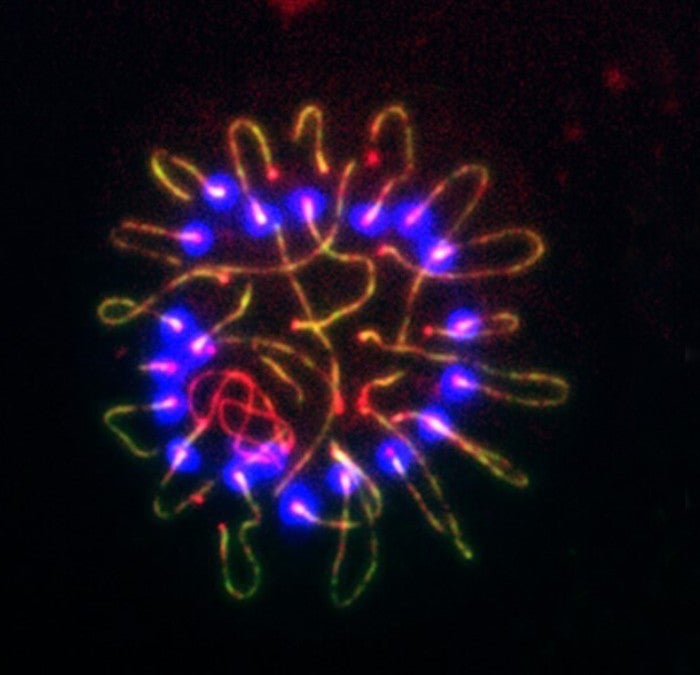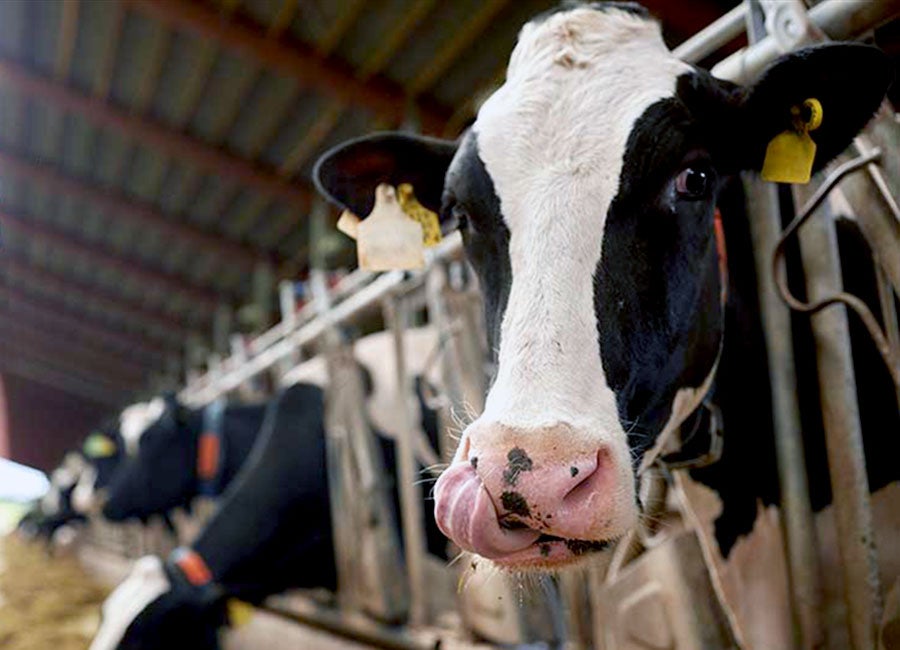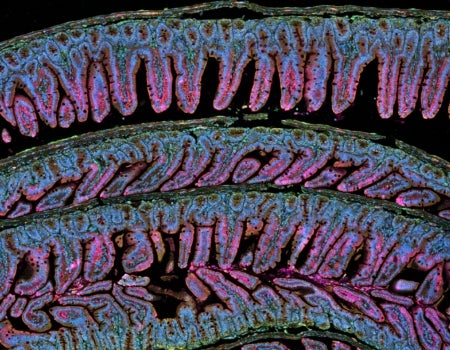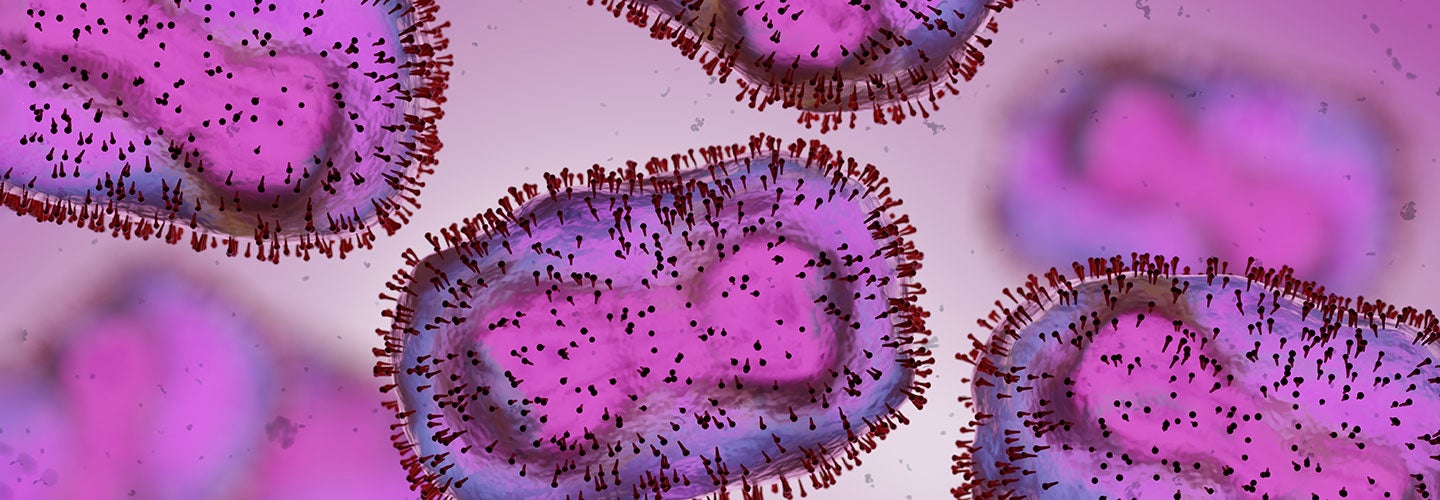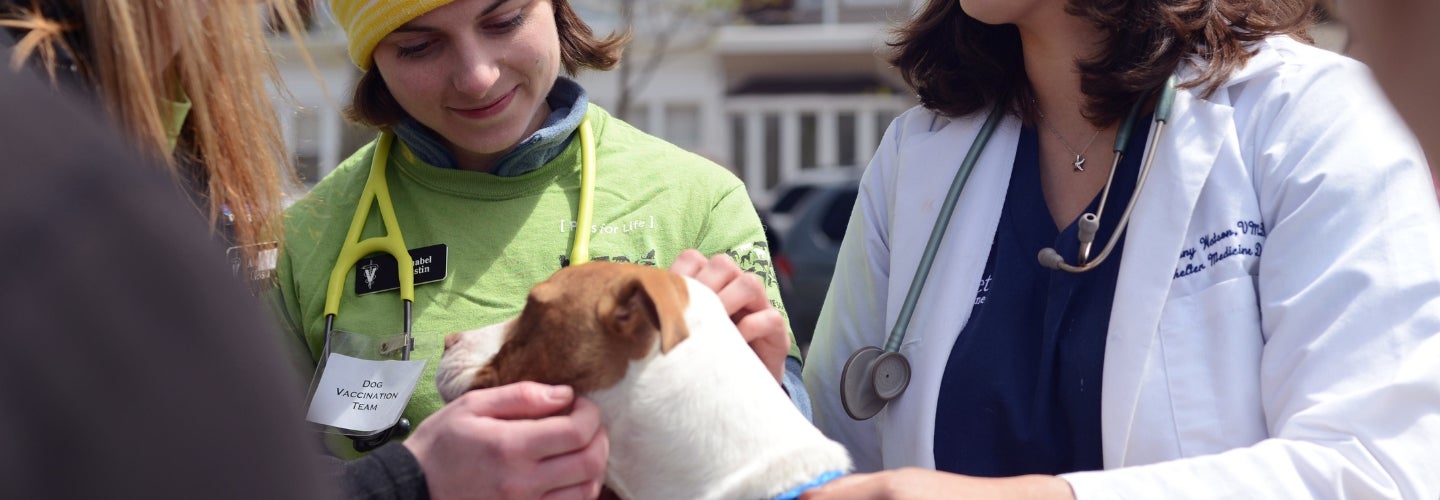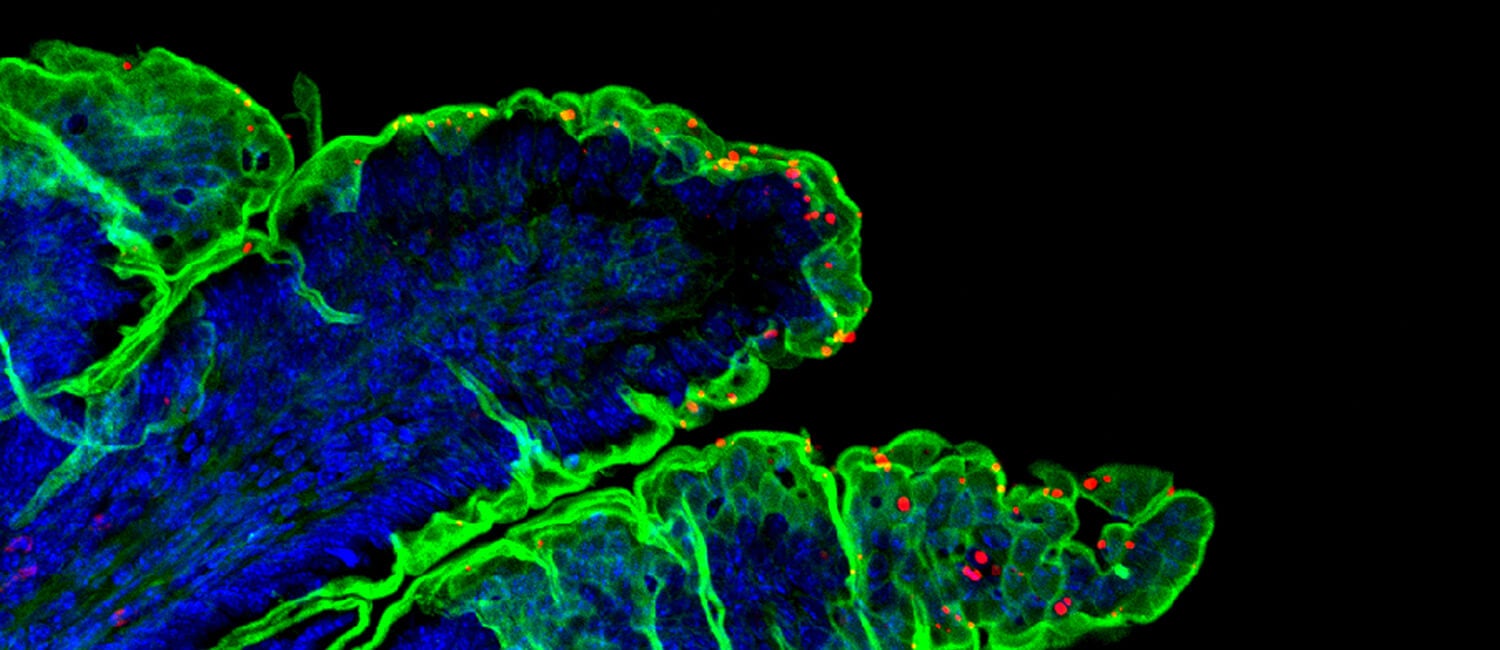
Research
Penn Vet scientists bring a valuable veterinary component to the table of scientific exploration, creating novel applications to improve animal health outcomes while also providing invaluable translational knowledge needed to advance human health.
Accelerating Research
Penn Vet’s research centers and programs (RCPs), and faculty laboratories, serve as a hub of discovery where scholars, students, and members of Penn’s biomedical community accelerate veterinary medicine’s impact on animal, human, and environmental health worldwide. Penn Vet’s RCPs generate courses, academic programs, community outreach, peer-reviewed research, and partnerships among academics, government, and industry.
In addition to its strengths in biomedicine, Penn Vet has a distinctive niche in infectious disease research, particularly in the areas of immunology and host-pathogen interactions, with robust research portfolios in neglected tropical diseases and diseases of poverty such as hookworm, the acute parasitic disease Schistosomiasis, malaria, Ebola, and other hemorrhagic viral illnesses.
Leveraging experience
Universally Recognized
Faculty Labs
Nationally in per-faculty funding from NIH
Research Centers and Programs
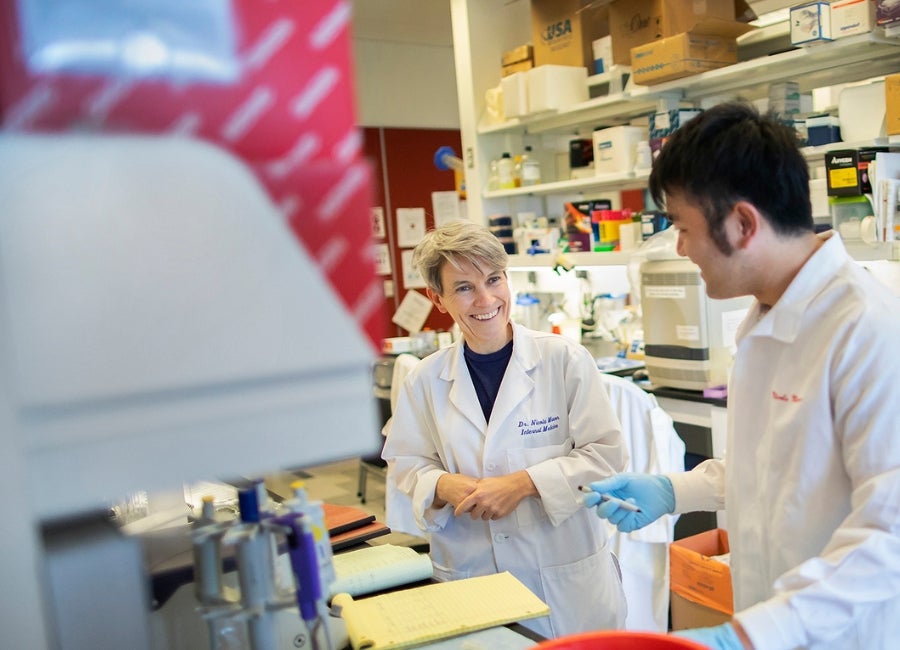
we’re exploring:
Featured Research Program
Comparative Immunotherapy Program
The mission of the Comparative Immunotherapy Program is to improve the lives of both animals and humans by leveraging comparative medicine, to understand immune mechanisms of disease and create innovative immunotherapies in areas of unmet need.
Research and Core Laboratories
Penn Vet faculty are engaged in ongoing, groundbreaking research. Additionally, our research facilities include state-of-the-art core laboratories. Learn more about both the Philadelphia and Kennett Square campuses research.
connect
Research Events and Newsletter
Penn Vet’s cornerstone research events and newsletter showcase the innovative science, collaborations, and discoveries emerging from our faculty.

Research News

Moving Closer to ‘True’ Equine IVF for Clinical Use
Katrin Hinrichs, Harry Werner Endowed Professor of Equine Medicine, and colleagues developed a technique that would allow successful conventional in vitro fertilization (IVF) with horses.

Newly Identified Gene Deletion in Standard Poodles Sheds Light on Severe Vision Disorder
Inherited retinal diseases form a broad and complex group of genetic conditions that cause progressive vision loss and blindness. Dogs, like humans, are susceptible to many such disorders. Because of…

Vision Scientists at Penn Vet Launch DogAEye, a Novel AI-Based Tool To Improve Early Diagnosis of Retinal Degeneration in Dogs
Veterinary ophthalmologists and vision scientists at the University of Pennsylvania’s School of Veterinary Medicine (Penn Vet) have announced the release of DogAEye, an innovative artificial intelligence (AI)–based clinical decision support…
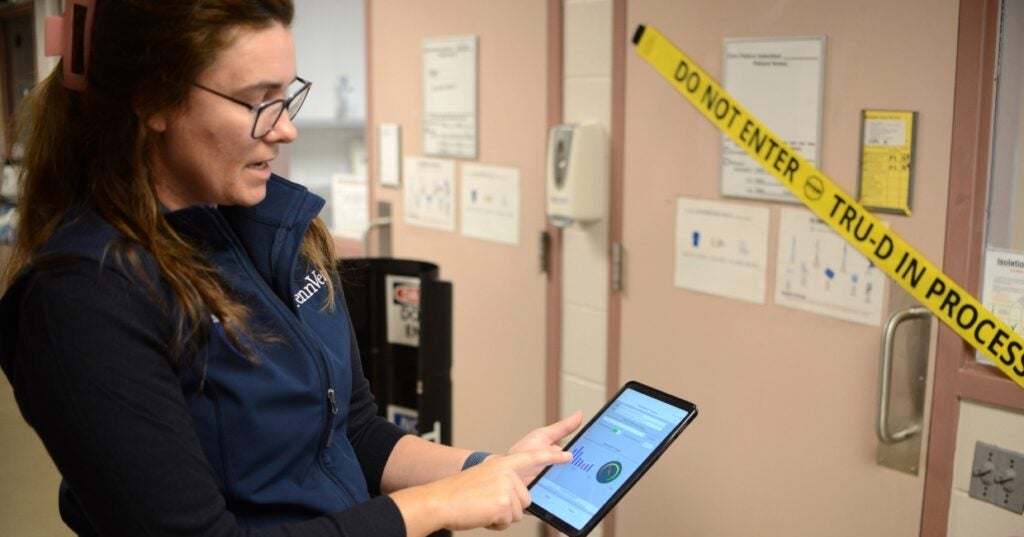
Ryan Hospital and New Bolton Center’s Infection Prevention and Biosecurity Programs Strive to Safeguard Health for Animals and People
Drug-resistant bacteria are one of the most urgent health challenges of our time, affecting people, animals, and the environments they share. The University of Pennsylvania’s School of Veterinary Medicine (Penn…

